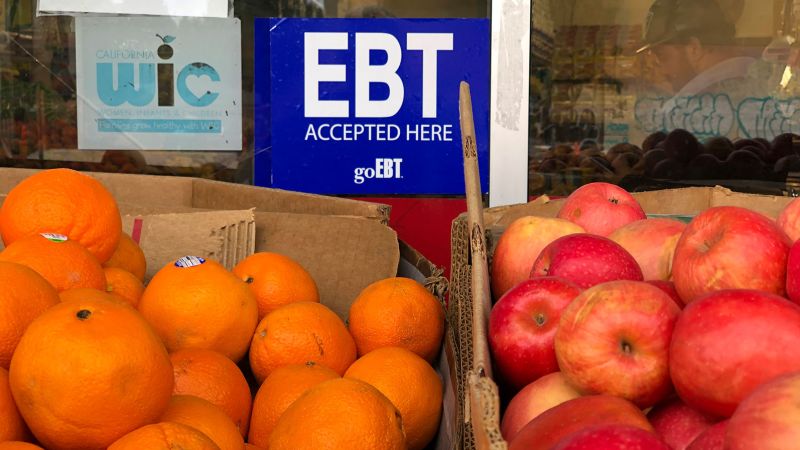The issue of food insecurity in America has reached critical proportions, impacting vulnerable populations such as the elderly, low-income families, and individuals with disabilities. A potent illustration of this struggle is Belinda McLoyd, a 64-year-old woman navigating her daily existence with multiple sclerosis and heart disease. McLoyd is reliant on the Supplemental Nutrition Assistance Program, or SNAP—a federal initiative intended to help low-income individuals purchase food. However, her experience of grappling with insufficient funds reveals the harsh reality many face: “They don’t give you that much to work with,” she shares, highlighting how her limited budget forces her to rely on low-nutrition options like ramen noodles.
As a retiree who previously worked in retail, McLoyd reflects on a time during the pandemic when SNAP benefits were temporarily increased. This allowed her to incorporate healthier items into her diet, such as fresh fruits, vegetables, and lean meats. However, with recent congressional cuts of $186 billion to the SNAP program slated to continue through 2034, she fears for her future ability to access nutritious food. The recent legislation specifically promises reductions in her SNAP benefits, rendering her anxious about how she will sustain healthy eating habits. Desperately seeking alternatives, McLoyd jokes about returning to peanut butter as a staple, noting, “It has everything in it.”
The political atmosphere surrounding SNAP has become increasingly contentious, with the Trump administration characterizing healthy eating as a national priority. This administration has sought to impose restrictions on the types of food that can be purchased with SNAP benefits, allowing states to limit these benefits for unhealthy items. This contradicts research suggesting that SNAP cuts clash with efforts designed to combat chronic illnesses exacerbated by poor diets. For many, including McLoyd, the prospect of turning to unhealthy, processed foods becomes a greater likelihood due to shrinking benefits.
Research indicates that food insecurity is linked to increased rates of chronic diseases within affected populations. The U.S. Department of Agriculture reported in 2023 that about 47 million people lived in households facing limited or uncertain access to food. Conditions such as hypertension and diabetes are more prevalent among food-insecure individuals, creating a vicious cycle of health and economic instability. Nevertheless, proponents of the cuts argue that they are aimed at strengthening SNAP by implementing work requirements and cost-sharing measures with states. This has sparked significant criticism and concern from advocates who argue that these cuts will fundamentally undermine the program’s mission to support vulnerable populations.
McLoyd’s community in Dougherty County, Georgia, exemplifies the challenges faced by many rural areas marked by poverty and a scarcity of grocery stores. With more than a third of the population relying on SNAP, barriers to accessing healthy food abound. Tiffany Terrell, who founded A Better Way Grocers in 2017, has made it her mission to improve food access for those in her community. Terrell invests in mobile grocery solutions to combat food deserts, yet recognizes that legislative cuts to food assistance will severely impact these efforts. The pandemic had earlier demonstrated to her how increased assistance could lead to healthier eating habits, yet the impending cuts pose a significant setback.
Young individuals, such as 22-year-old Stephen Harrison and his family, are similarly affected. Harrison is a culinary student whose family has relied on increased SNAP benefits to purchase nutritious food. The reduction of those benefits forces families to reevaluate their dietary choices, often steering them towards cheaper, less healthy options. Harrison’s reflection—“I’d buy hot dogs”—capsulizes the reality faced by many who find themselves unable to afford healthier meals.
The conversation surrounding SNAP is complex and multilayered, encompassing economic, health, and social facets. Experts contend that enhancing access to nutritious food should take precedence over imposing purchasing restrictions. Such limitations stigmatize beneficiaries and complicate the retail landscape. Ultimately, individuals like McLoyd, Terrell, and Harrison epitomize the urgent need for policy approaches that prioritize both food security and health equity—evidence that sustainable change requires a commitment to address the root causes of food insecurity.












